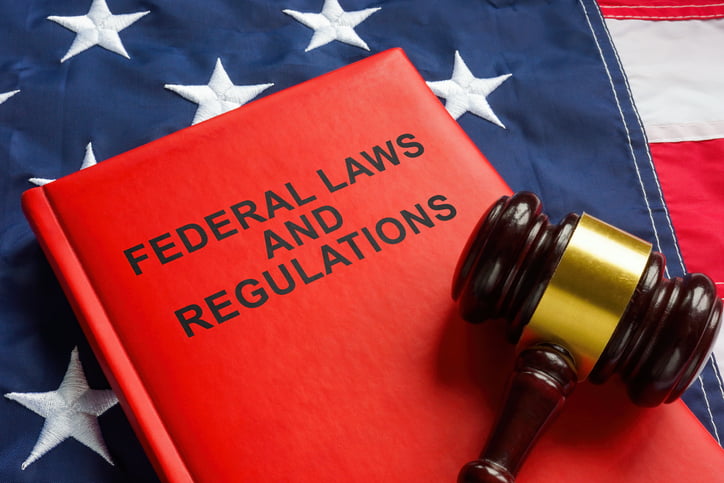5 Important Federal Laws You Need To Know About
Updated on:
Published on:
January 10, 2024
There are tons of government employee protection laws across the United States. Now there are many local acts, like some of Washington employee protection laws such as Workers’ Rights. However, there are also federal laws that all companies and organizations in those states must abide by.
Today, we’re looking at five of the most important federal employee protection laws in the United States. We’ll talk about what exactly they offer and why they’re important in modern workplaces. So, let’s dive right into it.
1: Fair Labor Standards Act (FLSA)
The Fair Labor Standards Act (FLSA) is perhaps the most important law for workers’ rights in the United States. The FLSA was established in 1938 and it has seen various changes and amendments over the years.
The law basically guarantees fair treatment of laborers while ensuring that employees are treated justly. FLSA dictates the minimum wage that must be paid to covered non-exempt employees to guard against unfair underpayment. Here are 5 key points in this particular law:
- Minimum wage standard establishes a baseline pay for covered non-exempt employees.
- Overtime compensation mandates overtime pay for work beyond the 40-hour week.
- Exemption criteria defines factors for determining exempt employee status from provisions.
- Protecting vulnerable workers safeguards against unfair underpayment, particularly for low-wage earners.
- Ensuring fair compensation balances compensation practices to prevent employee exploitation.
FLSA establishes regulations for overtime pay that aims to prevent the exploitation of employees through excessive work hours. The Act defines the standard 40-hour workweek and mandates that eligible employees receive overtime pay.
This ensures that they get paid at a rate not less than one and a half times their regular pay for hours worked beyond this threshold. As FLSA outlines criteria for determining which employees are exempt from these wage and hour provisions.
2: Occupational Safety and Health Act (OSHA)
The Occupational Safety and Health Act (OSHA) is a pivotal piece of legislation designed to keep American workers safe on the job. OSHA was enacted in 1971 and it places a dominant emphasis on creating workplaces that are free from recognized hazards.
The overarching goal is to ensure that employees enjoy environments conducive to their well-being and health. And that’s why it benefits the big four industries in quite a few ways, including:
- Promotes safe workplaces free from recognized health and safety hazards;
- Empowers workers to report concerns without fear of retaliation;
- Reduces the risk of workplace incidents and injuries;
- Fosters open communication for a culture of safety;
- And imposes penalties for non-adherence, encouraging safety prioritization.
OSHA has established a variety of rules and regulations over the years to protect employees from workplace hazards. They also have training programs called OSHA 10-Hour and OSHA 30-Hour. These programs grant certificates to workers for workplace safety and hazard awareness.
3: Family and Medical Leave Act (FMLA)
The Family and Medical Leave Act (FMLA) was established in 1993 and it has become a vital piece of law. Because it distinguishes the necessity of family needs and health concerns for American workers. Im simple words, FMLA ensures that eligible employees can take unpaid leave without risking their job security.
This law is designed to balance the demands of the workplace with the need for individuals to attend to their own health or family matters. As a result, the workers benefit from:
- Job security during family or medical leave periods;
- Enables work-life balance for personal and family needs;
- Continuation of essential health benefits during the leave;
- Time off for childbirth, adoption, and family care;
- And extended leave for caring for covered servicemembers’ health.
It’s also considered one of the key women employee protection laws. And qualified employees are can take up to 12 weeks of leave in a 12-month period for reasons such as:
- The birth or adoption of a child;
- The serious health condition of the employee;
- Or the care of a spouse, child, or parent with a serious health condition.
Additionally, FMLA allows for up to 26 weeks of leave to care for a covered servicemember with a serious injury or illness. And FMLA requires employers to maintain health benefits during the leave period, ensuring that employees can address matters without losing essential benefits.
4: Americans with Disabilities Act (ADA)
The Americans with Disabilities Act (ADA) is a landmark law established in 1990 to ensure that individuals with disabilities have equal opportunities in various aspects of life, including employment. ADA prohibits discrimination against people with disabilities in:
- The workplace;
- Public accommodations;
- And government services.
In the context of employment, ADA mandates that employers provide reasonable accommodations to enable individuals with disabilities to perform essential job functions. This could include modifications to the workplace or adjustments in work schedules.
ADA also focuses on removing barriers to promote the full participation of workers with disabilities. This helps promote disabled workers in the workforce by ensuring inclusivity and equal opportunities.
5: Title VII of the Civil Rights Act of 1964
Title VII of the Civil Rights Act of 1964 is another important federal law. The act addresses workplace discrimination based on race, color, religion, sex, or national origin. And Title VII prohibits employers from making employment decisions based on said characteristics.
The law extends beyond hiring and firing as it covers various aspects of employment including:
- Promotions and appraisals;
- Compensations and benefits;
- And terms and conditions of employment.
That’s why Title VII is one of the pivotal employee protection laws in the ongoing effort to create a fair and equitable workplace regardless of their background or identity.
Conclusion
These are some of the most important federal laws today. While there are plenty of other variations like the employee personal information protection laws across the United States. A few that stand out are the employee protection laws Washington state offers.
Or how the California employee protection laws offer specific benefits for eligible employees. Nevertheless, these five laws and acts that work on a federal level ensure safety, security, and a discrimination free working environment across the United States.
Related Posts

NY OSHA 30 vs Federal OSHA 30: Key Differences

How Mayor-Elect Mamdani Can Improve Worker Safety in NYC



